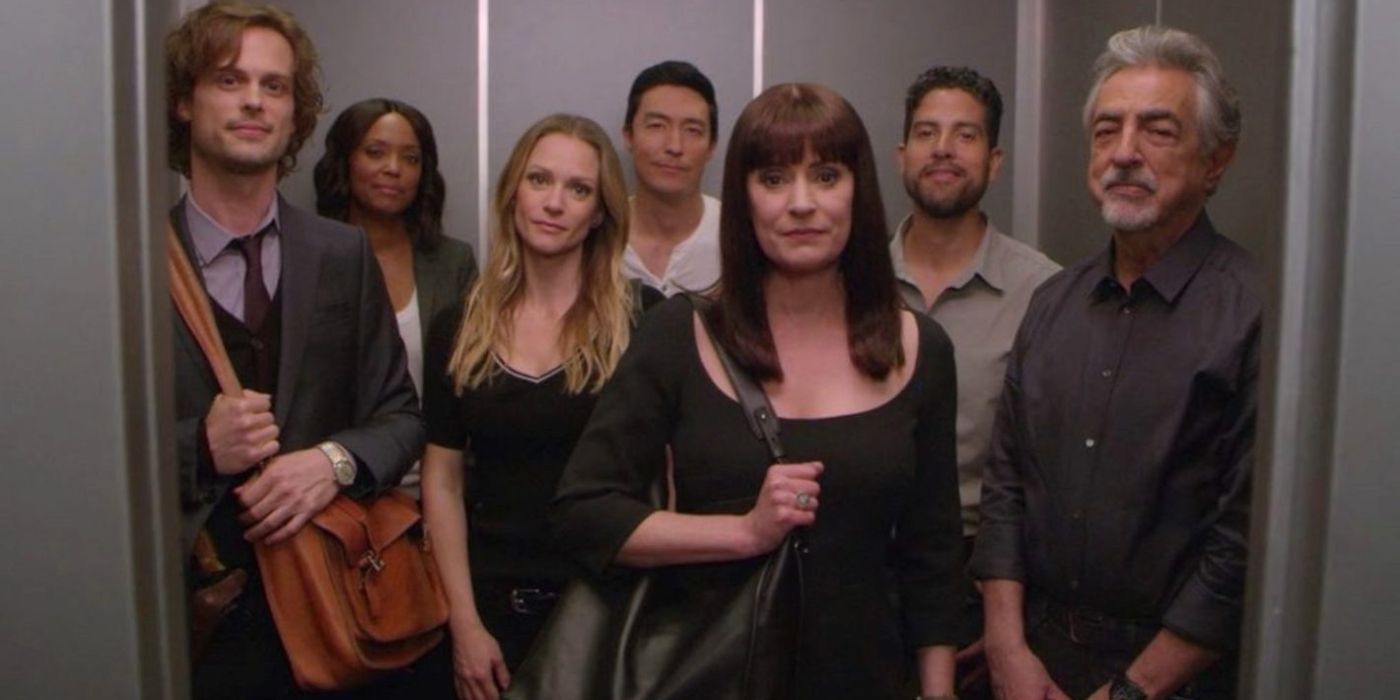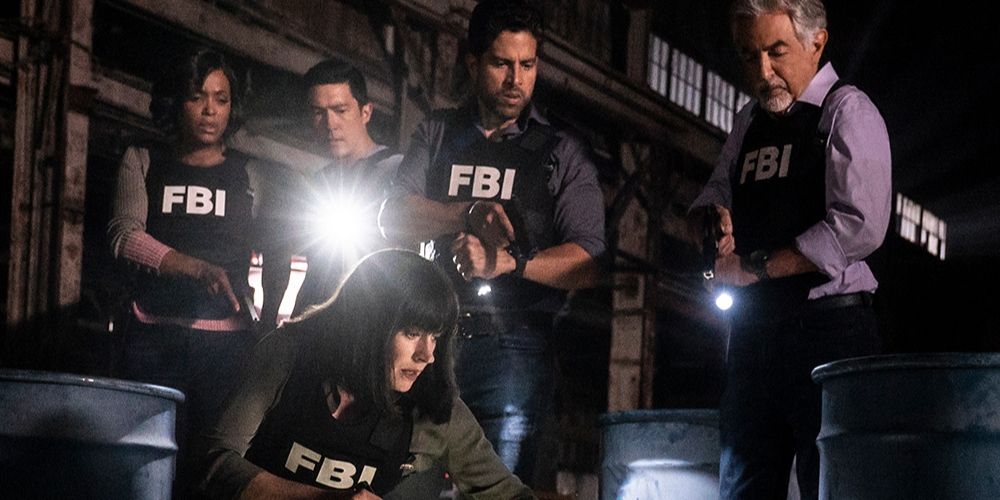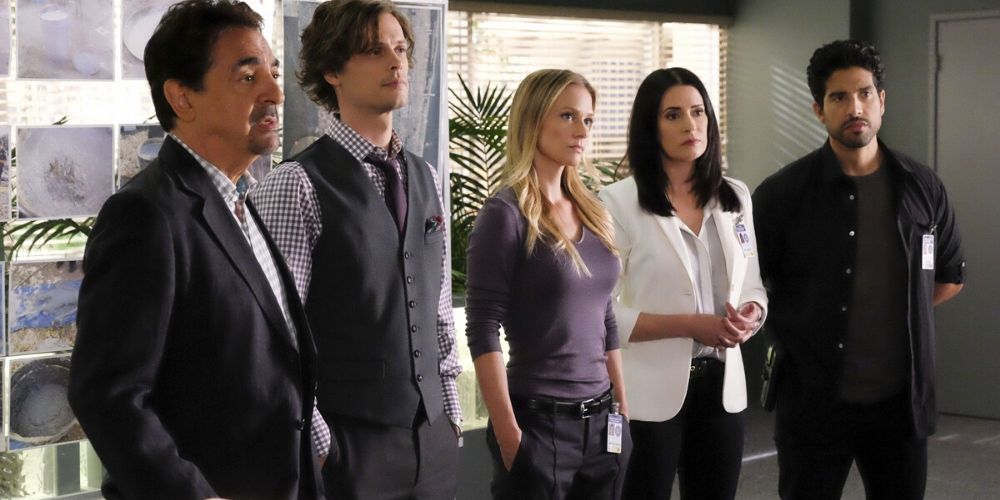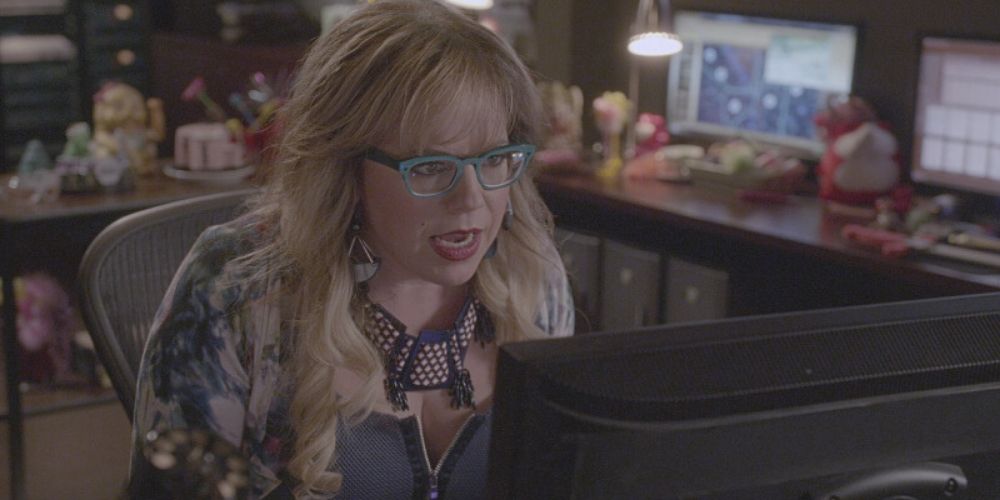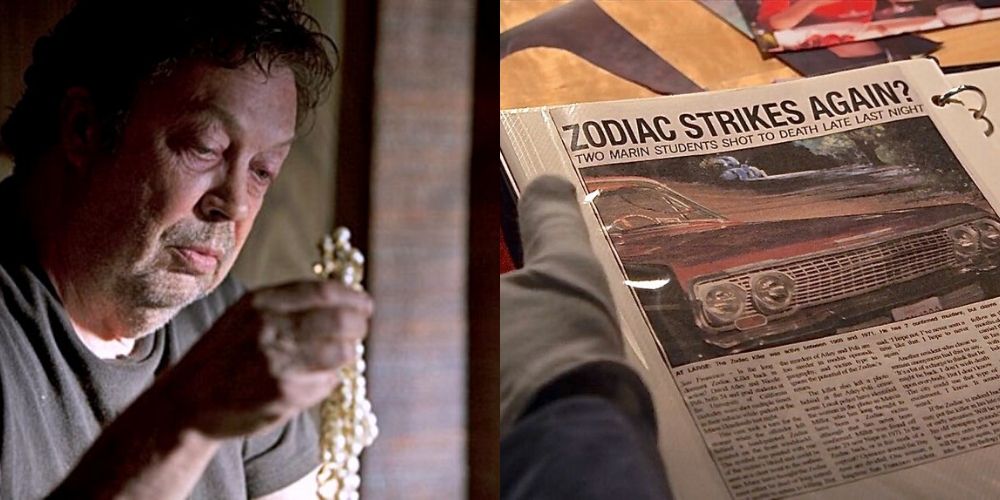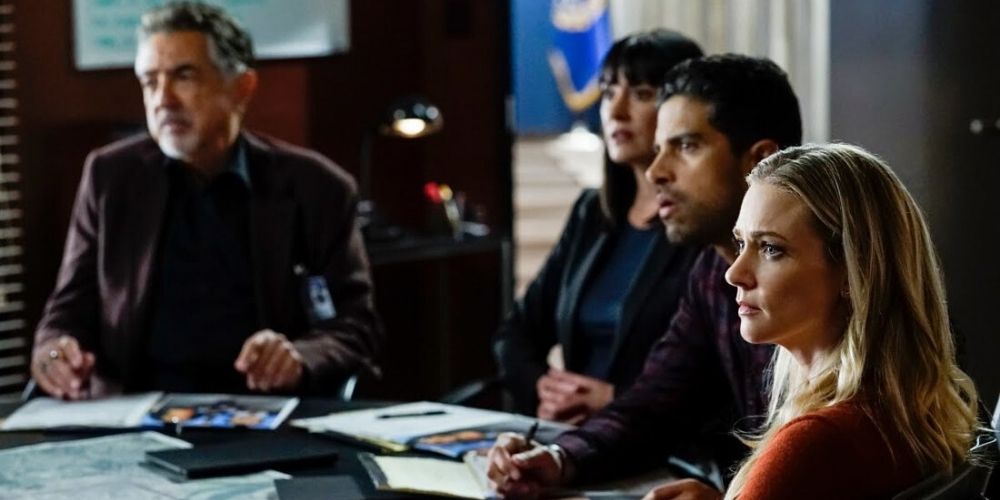Summary
- Criminal Minds may not accurately depict FBI work, but it blends storytelling with some real-life aspects of criminal psychology.
- The term “UnSub” used in the show is real FBI terminology for unidentified subjects, showing some authenticity in Criminal Minds.
- Real criminal psychologists may not confront killers like on the show, but they do add research to the field for future cases.
Many fans wonder how accurate is Criminal Minds, as each episode comes with a new UnSub and a slew of psychological and scientific reasoning used to identify and capture them. However, as well-thought out as each episode of Criminal Minds is, the show doesn’t portray the work of real-life FBI agents in the most accurate way. At its core, Criminal Minds is still a procedural drama, and the show never lets accuracy get in the way of telling a good story.
While there are many real-life cases some episodes are based on, the rest of the work the Behavioral Analysis Unit does on this show is almost entirely fabricated. That’s not to say that Criminal Minds is completely inaccurate, as the show doesn’t get everything wrong. There are a few things that happen in the BAU that mimic what really happens when psychology meets police work relatively well — and it’s this mix of accuracy and good storytelling that makes Criminal Minds so endearing across its 17 seasons.
Related
All 15 Seasons Of Criminal Minds, Ranked Worst To Best
Criminal Minds follows the FBI’s Behavioral Analysis Unit as they hunt murderers across the country, but not every season is at the same standard.
What Criminal Minds Got Wrong About Profiling
Criminal Profiling As An FBI Position
The Behavioral Analysis Unit is a core team of the FBI in the world of Criminal Minds, and contains their best criminal profilers like Spender Reid. However, there’s no real-life equivalent of the BAU in the real-world FBI. Not only that, there’s no fully-fledged FBI field agents who have the job title of “criminal profiler”. There are some offender profilers and other types of profilers, but they operate much lower on the food chain than the BAU does on the show.
Their jobs are completely different, far less dangerous, and not even close to as glamorous or prestigious as
Criminal Minds
makes them out to be.
Criminal psychologists work on serial killer cases but they don’t do the work that the BAU does onscreen. Their jobs are completely different, far less dangerous, and not even close to as glamorous or prestigious as Criminal Minds makes them out to be. Criminal psychologists are not in the thick of every case, and they don’t fight crime the way the BAU team does.
Cases Take A Week Or Two To Solve
One of the most glaring inaccuracies in Criminal Minds that makes it clear that good storytelling is the focus over accuracy is how long it takes the BAU to identify and capture each UnSub. Most cases on the show are wrapped up nicely and neatly within a week or two, which is much faster than in real life. Real criminal psychologists often take at least a few months or even a few years to solve each case.
Criminal Minds has a new case every week with story lines that were way ahead of their time, but that’s not how it works in the real world. There aren’t as many cases to solve and the ones that do cross a criminal psychologist’s desk are worked slow and steady. There are also a lot fewer resources than in the show.
The Team Confronts Killers Themselves
Another key way that Criminal Minds is inaccurate is that it wraps up each episode with the BAU teaming up with local law enforcement to bring the UnSub to justice, whether that means capturing them or killing them. In real life, criminal psychologists never confront killers. They’re not put in harm’s way and are rarely in the field. A criminal psychologist’s work is 90 percent desk work done in an office, much more similar to what Penelope Garcia does on the show, but with more psychology and less hacking.
This is yet another way that
Criminal Minds
opts for dramatic storytelling over accuracy, as many of the best moments in the show come when the BAU come face-to-face with the UnSubs they’re hunting.
The team on the show is entertaining to watch and produces plenty of the best quotes in Criminal Minds. They have been shot, beaten, kidnapped, and even killed in the line of duty. But criminal psychologists in real life are never placed in life-threatening situations like this. This is yet another way that Criminal Minds opts for dramatic storytelling over accuracy, as many of the best moments in the show come when the BAU come face-to-face with the UnSubs they’re hunting.
A Private Jet And Bottomless Resources
In Criminal Minds, the BAU has a private jet that they use to travel to various destinations while they’re solving crimes — and this is one of the most glaring inaccuracies in the entire series. They have big high-tech presentations for every case and Garcia is always at the ready to find whatever information is needed. There are no private jets for real-life criminal psychologists.
Real analysts don’t usually leave headquarters and would never have a need for a private jet.
What’s more, there are normally also no official presentations for every case. Someone hands someone else a file and that’s usually how it goes. The real-life analysts of the FBI have meetings sometimes, but not big high-tech presentations. Garcia is another resource a criminal psychologist team would never have. She finds completely unrealistic information and uses hacking techniques to get it. Technical analysts are not unheard of, but they wouldn’t find the same information that Garcia always does, and a team like the BAU would not have their own dedicated resource of this type.
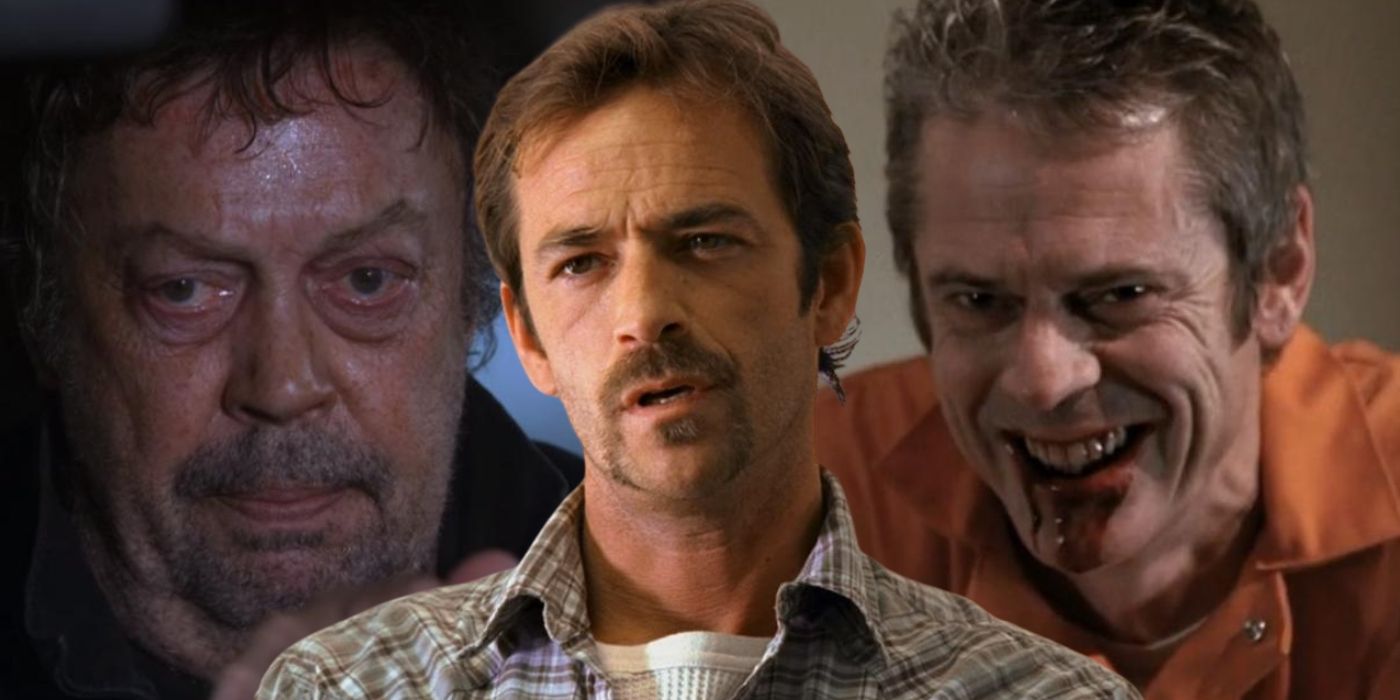
Related
20 Criminal Minds Episodes Based On Real Cases
There are Criminal Minds episodes that are both reasonably straight copies of real killers as well as episodes using real-life cases as a reference.
They’re In Charge Of Every Case
Since the show is driven week-by-week by the endearing team members of the BAU, the characters of Criminal Minds are engaging and even have hidden details that everyone misses. Every episode, the BAU is either invited onto a case by the jurisdiction where the case is, or they take over in some other way. They come in and often tell the police how to work the case, making it look like their ways are superior and they have all the power when it comes to decision-making.
Criminal Minds treats the BAU almost like law-enforcement rock stars. They take over dealing with the press and work on the case in the field. However, real criminal psychologists work in complement to the police, and they definitely wouldn’t be drafted in to take over duties like speaking to the press. They’re really more like behind-the-scenes people and don’t take over anything if they help with a case.
What Criminal Minds Got Right About Profiling
“UNSUB” Is A Real FBI Term
While the methods of the BAU in Criminal Minds may not be accurate, much of the terminology they use is true to real life, especially when referring to the criminals they apprehend as UnSubs. Rumors in the world of Criminal Minds insist that the term “UnSub” was created entirely for the show. In fact, this term has been used by the FBI and other departments to talk about unidentified subjects for years.
The repeated explanation of what UnSub means serves as exposition for new viewers who may be unfamiliar.
While UnSub as a term is synonymous with Criminal Minds for many fans of the show, it wasn’t invented by it. The term is also used by writers of crime fiction and true crime alike and has been for decades. In Criminal Minds, they act like the term is being introduced, but that’s mostly because it was always used by professionals and most civilians watching at home would have no idea what UnSub means — and the repeated explanation of what UnSub means serves as exposition for new viewers who may be unfamiliar.
Analytic Patterns Help Predict Traits Of Future Suspects
Criminal Minds may take creative liberties when it comes to its portrayal of the FBI, but the way it uses criminal psychology and analysts is suprisingly accurate and clearly well researched. Criminal psychology and offender profiling both use analytics to predict the behavior of future killers, to identify when a case is dealing with a serial killer, and narrow down the pool of suspects in a given case. This work is always evolving when new things are discovered.
Another way that Criminal Minds was accurate when it came to criminal psychology was showing it as a somewhat modern method of apprehending criminals. Behavioral analysis is a fairly new technique compared to others that are used more often in the field. It’s not magic, and it doesn’t work out perfectly and accurately every time. Still, the science of behavioral analytics is used in similar ways to those shown in Criminal Minds, and it’s been essential in capturing several real-life serial killers.
Researching Criminals To Add To A Larger Body Of Work
Criminal Minds was accurate when it showed the importance of all the research carried out by the BAU, and that key insight gained in each case would be used to solve future cases. There are several episodes where the team is interviewing killers and researching to add to the body of work that other criminal psychologists can use in the future. There are many overlapping personality traits between serial killers, so key analysis used to bring one to justice will likely prove useful when another emerges.
While criminal psychologists may not be out in the field in the same way, they do add their own research to that larger project in order to further the information that future psychologists will pull from. The field is relatively new and there aren’t as many case studies to refer to as other scientific specialties. Adding to the research is imperative in order to keep the criminal psychologist profession alive and evolving.

Related
Criminal Minds: Every Episode Matthew Gray Gubler Directed, Ranked
Matthew Gray Gubler hasn’t returned for the Criminal Minds reboot. However, fans can still appreciate the several episodes he directed.
Some Cases Mimic Real-Life Killers
There are multiple Criminal Minds episodes based on real-life serial killers and other criminals. The cases that the BAU chases are not real, of course, but many of them do mimic the cases of real-life killers. These are killers that took criminal psychologists and police months or years to chase down, but they’re still real and the details of these cases show up in cases on the show.
Details from those cases appear throughout these episodes, and characters like Reid will often reference the real-killers when discussing the methods of the fictional UnSubs.
Criminal Minds may not include dramatizations of the true events, but it does portray many elements of these real-life killers with a remarkable degree of accuracy. For example, season 5, episode 23 – “Our Darkest Hour” – is about Billy Flynn, and his methods mimic “The Night Stalker” Richard Ramirez of 1989. In season 7, the 11th episode titled “True Genius” is about a Zodiac Killer copycat. Details from those cases appear throughout these episodes, and characters like Reid will often reference the real-killers when discussing the methods of the fictional UnSubs.
Mountains Of Paperwork
One of the most accurate elements of Criminal Minds is also one of the most dull. For every moment BAU members like Rossi, Morgan, and Prentiss spend storming a building with their firearms raised, there are many more when they’re lost in a mountain of paperwork. The more mundane aspects of the job are not often shown on the show, but every once in a while, the idea of tons of paperwork is brought up.
A couple of times, Rossi is seen with files and research that he frantically uses to find the next clue.
Hotch talks about it to Morgan when he’s getting ready to leave. JJ’s office is often filled with files. A couple of times, Rossi is seen with files and research that he frantically uses to find the next clue. In the real world, this is what the job is mostly about. Criminal psychologists spend most of their time researching or working at a desk, and Criminal Minds didn’t shy away from this fact.

